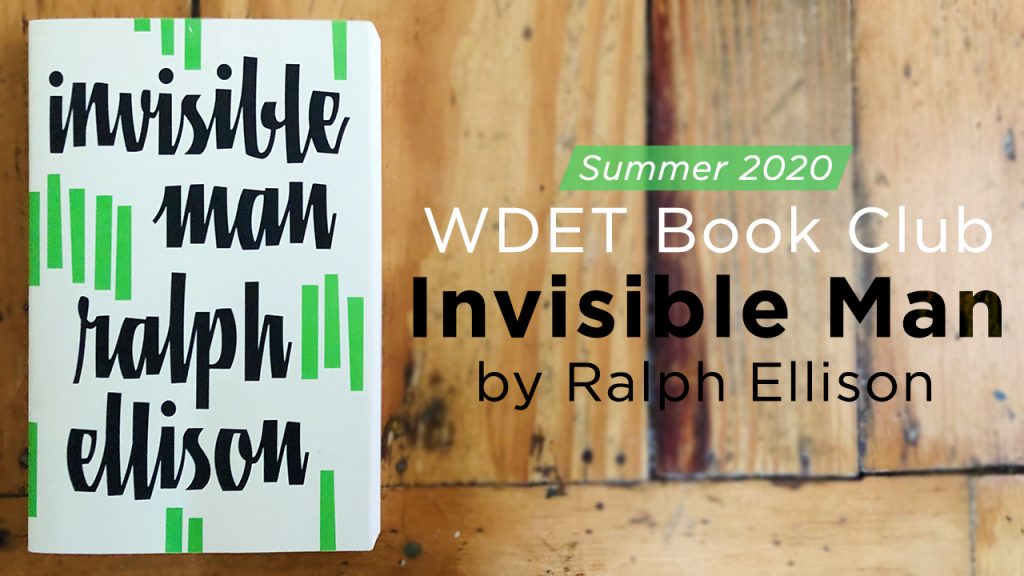“White Rage” Author on Racial Justice and Ralph Ellison’s “Invisible Man”
“We are so focused in on the flames, that we miss the kindling,” explains author Professor Carol Anderson of the systemic white supremacy that feeds racial inequity.

WDET’s Book Club is back for a third year, and this summer’s selection is Ralph Ellison’s “Invisible Man,” a formative work of the 20th century and winner of the U.S. National Book Award for Fiction in 1953.
Detroit Today’s Stephen Henderson and readers will discuss the novel weekly on-air and online in the WDET Book Club Facebook community. You can follow along by reading three to four chapters a week until the end of August. The novel’s interrogation of power, systemic racism and inequality has never felt more urgent or pertinent than it does today.
“That’s what we have to understand about white rage, is that is punishes Black excellence,” says Professor Anderson.
Listen: Carol Anderson on her book “White Rage.”
In this conversation, we speak with Carol Anderson, Charles Howard Candler Professor of African American Studies at Emory University and author of “White Rage: The Unspoken Truth of Our Nation’s Divide.”
Anderson says there was a strong inflection point of white backlash in the 1940’s, a period in which Ellison wrote. She says after the war, Black soldiers came home and said, “we are not going back, we are going forward.” Anderson says this stance spurred a movement toward civil rights and a subsequent backlash in response that ended in McCarthyism.
Trusted, accurate, up-to-date
WDET is here to keep you informed on essential information, news and resources related to COVID-19.
This is a stressful, insecure time for many. So it’s more important than ever for you, our listeners and readers, who are able to donate to keep supporting WDET’s mission. Please make a gift today.
Discussion Points
- False, racist narratives about Black people started in the period of slavery, says Anderson, and those myths continue to drive white rage today. “The narrative of Black pathology is powerful,” says Anderson.
- Anderson says white rage is “quiet, it’s subtle, it’s bureaucratic, it’s legalistic, it’s happening in our legislature,” and that “those policies systematically undermine Black advancement.” She says the social upheaval witnessed today is in response to this systemic racism. “The protests are about state violence against Black lives, state-sponsored violence,” says Anderson.
- Systemic racism, Anderson says, negatively impacts the country as a whole. “The damage of white supremacy is what we’re living through right now,” says Anderson. She adds that when “we dismantle white supremacy and anti-Blackness, we are going to have an incredible nation.”
Keep the Conversation Going
Respond on Facebook to this weeks’ prompt about Chapter 5:
What was your takeaway from the story of the Founder’s vision as told by the blind Reverend Barbee?
Further Listening
WDET Book Club: “Invisible Man,” Black Lives Matter and the Politics of Ralph Ellison
Author Colson Whitehead on “The Nickel Boys,” “Invisible Man,” and Racial Inequity
WDET Book Club: Author JM Holmes on “Invisible Man” and Identity
